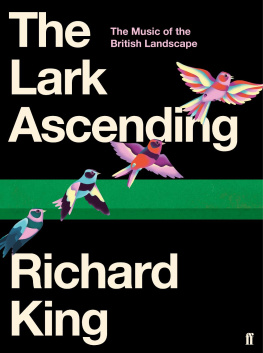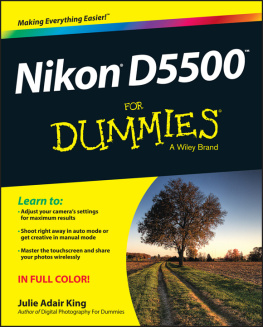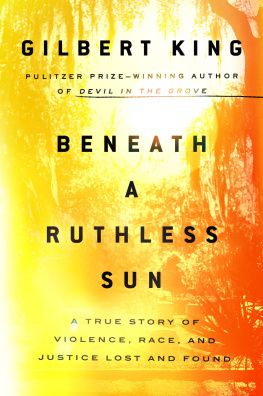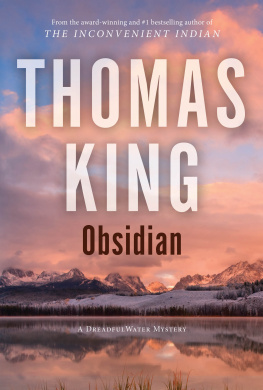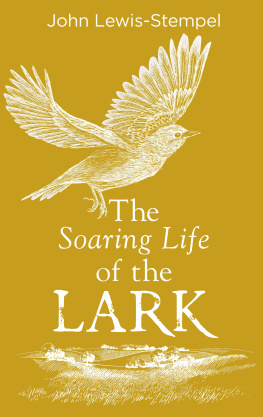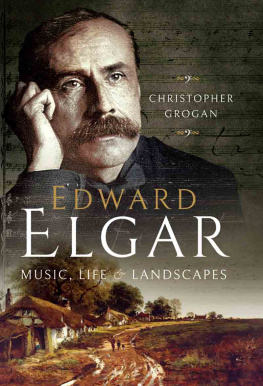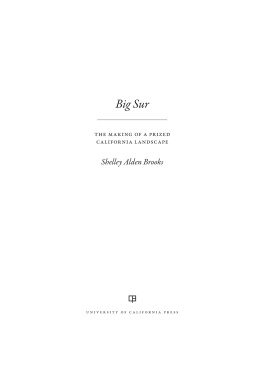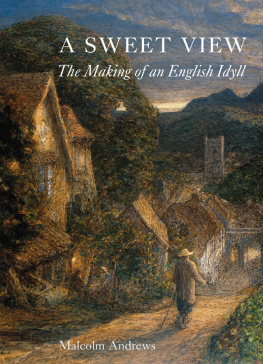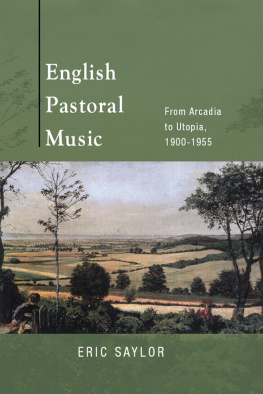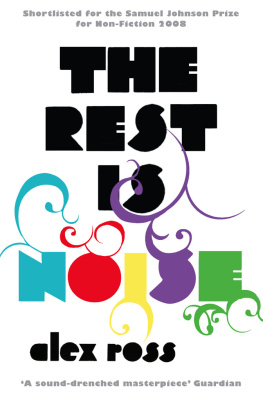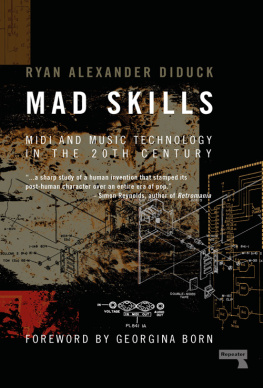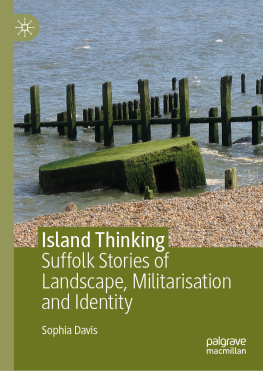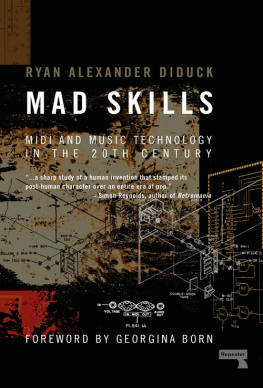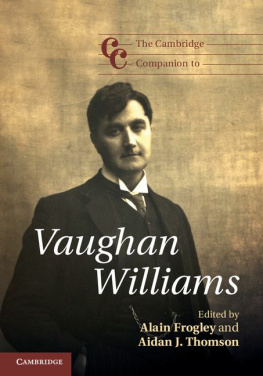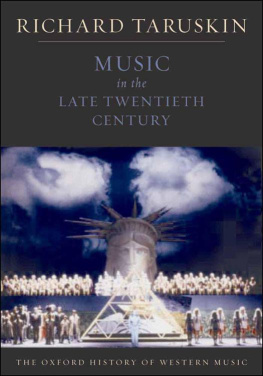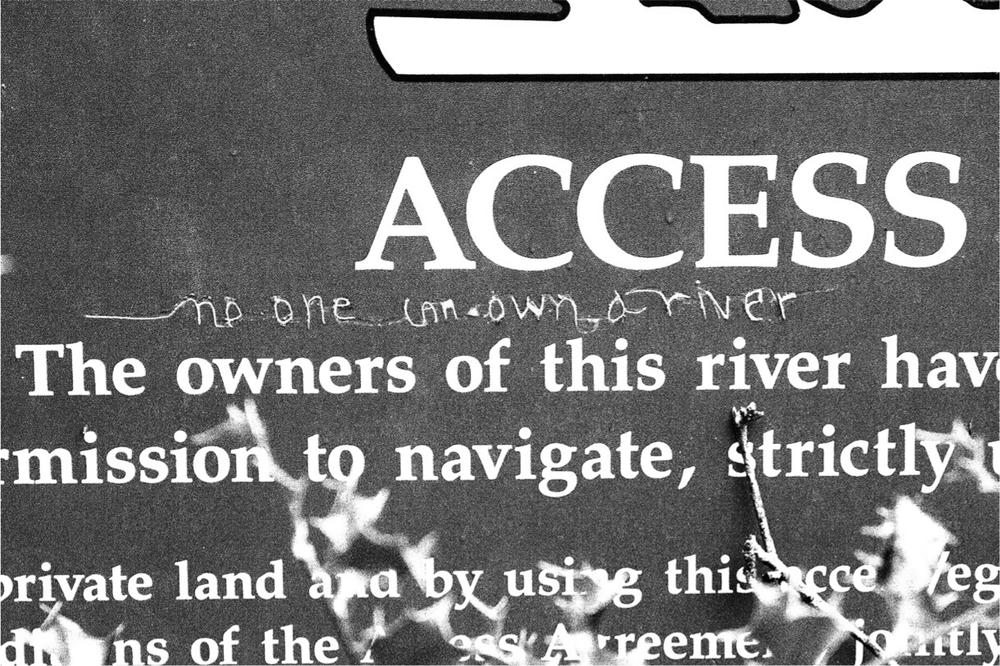No One Can Own A River. Sign near the banks of the River Wye at Llyswen, Powys. (Nick Hand)
When we have first-hand knowledge of the land on which we live, then we can re-shape it according to our ideals.
Ken-ea (Mabel Barker), The Nomad, Kibbo-Kift Newsletter, 1924
The landscape is never truly ours. A mile away from my home in Mid Wales there is a notice attached to a fence in the corner of a secluded field. The notice states that the path beneath it leads to a designated access and egress point on the bank of the River Wye, which has been provided for the use of canoeists wishing to navigate the water. Entrance is permitted each October to March but under strict conditions. The notice then lists the set of rules regarding the various rights granted by the five organisations that have agreed this location as an access point to the river: the Countryside Council for Wales, Environment Agency Wales, the Welsh Assembly Government, the Wye & Usk Foundation, BOPA (the British Outdoor Professionals Association).
Three of these organisations whose insignia run along the bottom of the notice no longer exist, so it is uncertain whether the permissions stated on the notice are still upheld. During summer the area around the notice is overgrown with bracken and ferns that protect its colour from fading but ensure that the information is barely visible. In this sparsely populated rural area, where farming remains the principal economic activity and canoeists are seldom seen even outside the fishing season, graffiti is rare. It is therefore a surprise to see that someone has scratched a message in neat letters onto this metal notice that rejects its designations and instructions. The statement they have left is straightforward: No one can own a river.
The presence of the Wye & Usk Foundation on the sign, a still-thriving local charity that issues day tickets and permits for fishing, attests to the fact a river may be subject to environmental jurisdictions. Nevertheless, the assertion made by the graffiti artist technically their message is a work of sgraffito, the scratching away of a top layer of paint is undeniable. A river is a movement of energy that cannot be halted, only controlled or dredged by complicated processes of engineering. Unlike the land that surrounds this quiet stretch of the River Wye on which the notice stands, no one can lay claim to free-flowing water.
Conventions and laws that have endured for centuries dictate the relationship we have with the countryside, whether on land or in water. Despite these jurisdictions our sense of union with the landscape feels equally durable. In our lifetime very few of us will ever own a physical piece of the landscape, yet it continues to define our national identity: the White Cliffs of Dover, Englands Mountains Green and the meadow, mill, cottage and shallow water depicted in Constables The Hay Wain. These images, now all but anodyne in their familiarity, are embedded in our national psyche to such a degree they sustain the belief that the landscape is timeless and ours to commune with. Rural Britain remains the panorama onto which we project the idea of our best selves.
According to the 2011 census over 90 per cent of the population live in urban areas, but urban Britain represents no more than 10 per cent of our countrys landmass. The identity of those to whom the majority of the land of Great Britain belongs remains vague, if not opaque. A survey in Country Life magazine, held four years after the census, estimated that 36,000 people, roughly half a percentage point of the population, owned more than half of rural England and Wales. In Scotland, the devolved government similarly estimated that in their country a mere 432 individuals owned a similar amount of land. Yet to many of us, including the writer of the neat sgraffito on the sign near the River Wye, the depth of feeling we have for nature transcends the rule of law and the ownership of property or acreage. When contemplating the landscape our emotional response is often one that cannot be defined merely as nostalgia or patriotism. It is instead the realisation that something in our consciousness remains undiscovered beneath the soil. The attachment we experience is elemental, an act of identification of such strength it directs us back to inhabit the countryside, however temporarily, despite the regulations that inhibit us from doing so. Music has a rare ability to articulate this sense of yearning and few compositions capture our affinity with the natural world so affectingly as The Lark Ascending, the fifteen-minute romance begun by the composer Ralph Vaughan Williams at the outbreak of the Great War and completed in 1920.
The Lark Ascending was premiered as an arrangement for violin and piano in a concert at Shirehampton, near Bristol, in December of that year where the violinist Marie Hall, to whom Vaughan Williams dedicated the work, performed it. Six months later, on a June evening in London when Hall was accompanied by the British Symphony Orchestra under the baton of Adrian Boult, The Lark Ascending received its premiere as the romance for violin and orchestra beloved by millions of listeners.
The significance of The Lark Ascending in British life is hard to overstate. It is the most requested piece of music on the radio programme Desert Island Discs, is often awarded first place in polls of the countrys favourite piece of music and is regularly heard at funerals, particularly, though by no means exclusively, in rural areas. A review of its London premiere in The Times suggested that the music of The Lark dreams itself along. Vaughan Williamss evocation of a bird flying free from earthbound realities, crossing a perfectly imagined landscape, has resonated deeply with anyone who has found themselves dreaming along with The Lark Ascending. It is an experience as intimate, if not spiritual, as music can create.
Vaughan Williams regularly included place names with which he felt a great affinity in his compositions. The composers sense of genius loci was acute. Down Ampney, the tune he composed for the hymn Come Down, O Love Divine, takes its name from the Gloucestershire village of his birth. Vaughan Williams was similarly assiduous in cataloguing the locations of the many traditional songs he collected throughout his life, ensuring they would always be identified with the site of their discovery and the place in which they had traditionally been sung. In 1932 he gave a series of lectures at Bryn Mawr College, Pennsylvania, titled National Music. Folk song, the composer told his audience, is not a cause of national music, it is a manifestation of it.
Throughout his life, the principle that a countrys music was made by its people, rather than for them, was one Vaughan Williams adhered to. He recognised the ability to understand, enjoy and immerse oneself in music in everyone.
According to the composer music was the art of the humble but also the art form with the greatest capacity to transform the everyday, even if only by celebrating it, such is the function of many folk songs. His friend and musical biographer Michael Kennedy later wrote of Vaughan Williams: His nationalism was avowedly conscious; never was it self-conscious. There never was a less typical typical Englishman. Vaughan Williams believed music was a latent force in all people the only means of artistic expression which is natural to everybody.

